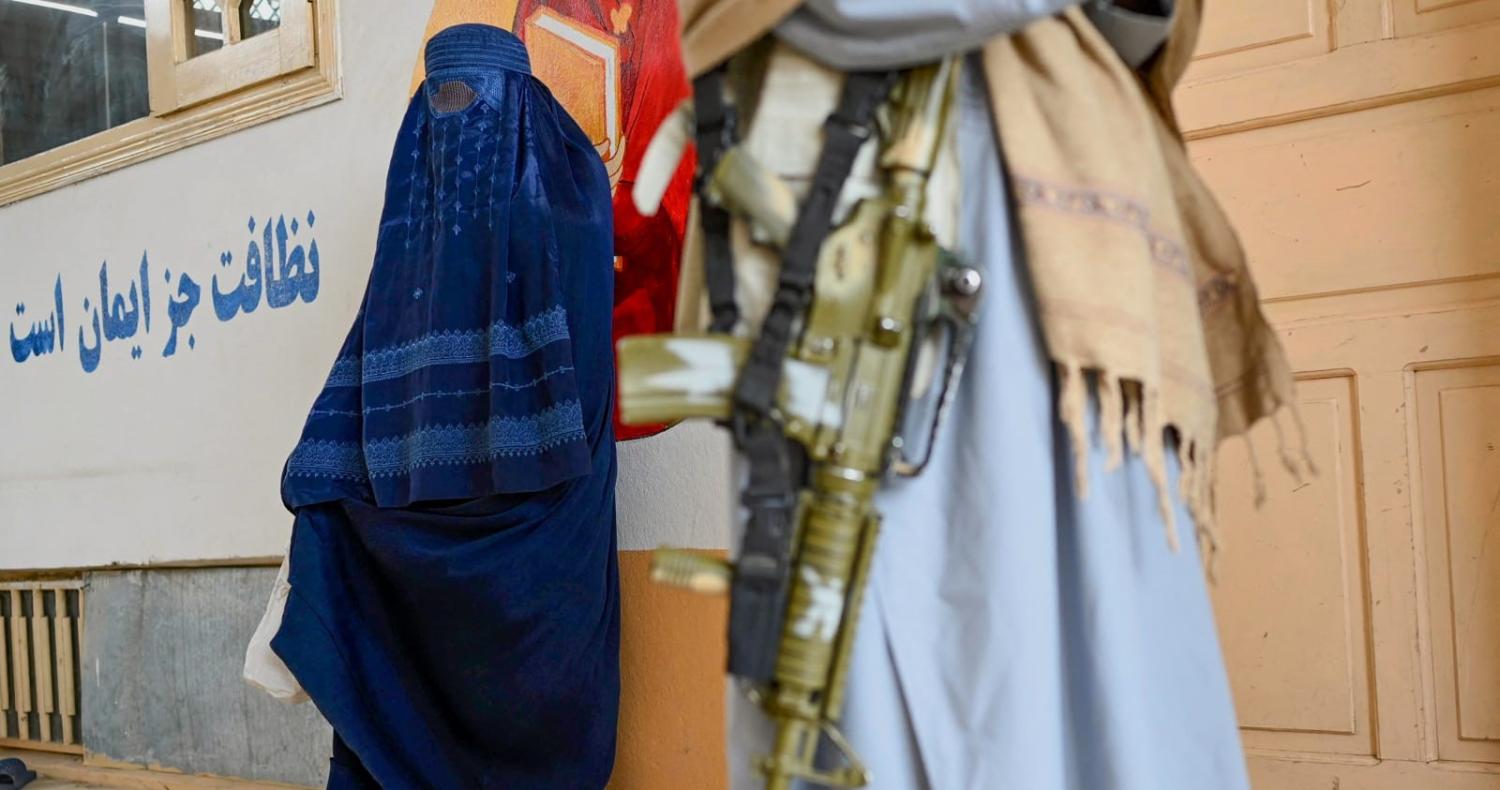The Taliban’s Supreme Leader Mullah Hibatullah Akhundzada has vowed to start stoning women to death in public. On 23 March, in a voice message aired on a Taliban-controlled broadcast service, he stated, “We will flog the women … we will stone them to death in public [for adultery] …You may call it a violation of women’s rights when we publicly stone or flog them for committing adultery because they conflict with your democratic principles…[But] I represent Allah, and you represent Satan.”
Taliban “officials” are already ruthlessly “punishing” women on a regular basis. Women are flogged a minimum of 30 times for behaviour that is normal elsewhere in the world, such as using a mobile phone, talking with men, falling in love or having a relationship – because for the Taliban all these activities are adulterous in nature.
Unfortunately, international silence is not only enabling the Taliban’s brutal rule in Afghanistan, but also legitimising criminal activities against women made through numerous “decrees”. This began in September 2021 when the Taliban brought down the signboard of the Ministry of Women’s Affairs and replaced it with the Ministry for the Promotion of Virtue and Prevention of Vice, one of its strictest ministries. The Taliban have since introduced more than 50 decrees that directly restrain the rights and dignity of women, and, as was expected, none of these decrees have been reversed.
Among the notorious decrees:
- In December 2021, the Taliban announced that women weren’t allowed to travel more than 70 kilometres without a Mahram-male relative to escort them.
- In May 2022, the Taliban ordered all women to observe “proper hijab”, preferably by wearing a chadari, a loose black garment covering body and face, in public and made male relatives responsible for enforcing the ban or face punishment.
- In August 2022, the Taliban established the women’s morality police department, specifically going after women to implement their rules and edicts.
- In December 2022, the Ministry of Higher Education issued a written order to public and private universities, suspending female education until further notice.
The Taliban’s edicts, decrees, and overall outlook are the product of a deadly blend of tribal codes of conduct and strictest interpretation of Islam. A woman is consequently considered to be the property of male members of her family, clan and tribe. There is no scope for a woman to assert her existence in such a patriarchal social setup. She is the sole carrier of the burden of “honour”, and can be legally mutilated and killed for defiling it.
Factors contributing to the horrid situation for women include a failure to deal decisively with perpetrators, a culture of impunity, and perceptions that violence against women is “normal”. Illiteracy and low levels of public awareness also contributes, along with traditional patterns of marriage, women’s limited access to justice and the lack of security. It means on the streets of Kabul and in other provinces there is an unprecedented increase in number of woman beggars. They are begging for just a little bread for themselves and for their children.
The Taliban regime is systematically excluding half the population from the public sphere and also subjugating them in private space. In his Eid-ul-Adha message of 25 June last year, Akhundzada declared: “necessary steps have been taken for the betterment of women as half of society in order to provide them with a comfortable and prosperous life according to the Islamic Shariah”.
However, this hollow statement is exposed by reality. Afghan women are raped, assaulted, maimed, abducted, forcefully wedded, arrested, whipped and murdered by the Taliban. Moreover, they are also suffering at psychological level. As the UNAMA “Summary report of country-wide women’s consultations” described in September last year:
Harassment, intimidation, and violence on the street by both Taliban and ordinary men is reportedly an increasingly common reality for women who are seen as defying decrees. Women spoke of psychological issues, including depression, insomnia, loss of hope and motivation, anxiety, fear, aggression, isolation and increasingly isolationist behaviour, and suicidal ideation.
Apart from women of Afghanistan, the Taliban is not even sparing the female staff working in foreign missions and embassies. Countries are either shutting offices or relocating. In December 2022, Jan Egeland, the Secretary General of the Norwegian Refugee Council, said that the banning of female staff was a big blow and therefore the organisation suspended all work. In February last year, Saudi Arabia evacuated diplomats and embassy staff from Kabul after the Taliban barred all female employees of the embassy from working.
The Taliban’s previous rule from 1996 to 2001 caused tremendous damage to Afghan women. The earlier regime was notorious for petrifying the mind and body of Afghan women with lashings, public executions, stoning, and sexual violence. This time around, the Taliban is normalising violence against women. It is difficult to quantify the extent exploitation and harassment, particularly of women, as most of the cases go unreported. The Taliban is on a relentless mission to erase women from the political, economic, and societal discourse of Afghanistan.

